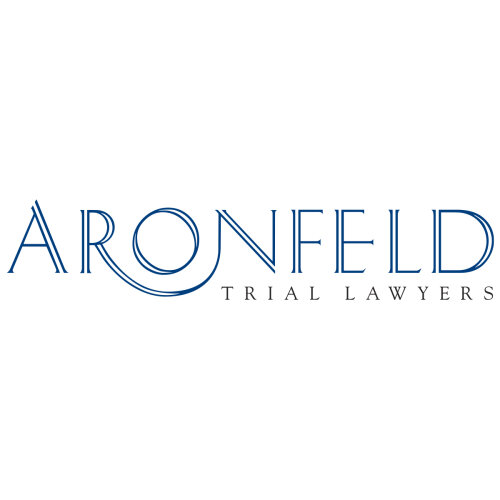Best State, Local, and Municipal Law Lawyers in Miami
Share your needs with us, get contacted by law firms.
Free. Takes 2 min.
List of the best lawyers in Miami, United States
About State, Local, and Municipal Law in Miami, United States
State, local, and municipal law refers to the legal frameworks and regulations that govern states, counties, and cities, respectively. In Miami, these laws encompass a wide range of issues from zoning and land use, to public safety and local taxation. Miami falls under the jurisdiction of Florida state law as well as Miami-Dade County ordinances and the city’s own municipal regulations. This area of law is crucial for maintaining civic order and ensuring the smooth functioning of government services.
Why You May Need a Lawyer
There are several situations where an individual or business may require legal help in the realm of state, local, and municipal law. Some of these include:
- Property Development: Navigating zoning laws and obtaining building permits.
- Land Use and Environmental Concerns: Addressing disputes related to land use or environmental regulations.
- Local Government Relations: Engaging with local government boards or commissions.
- Business Licenses: Ensuring compliance with local business licensing requirements.
- Labor and Employment Issues: Complying with local labor ordinances.
- Handling Citations or Violations: Responding to fines or tickets issued by municipal authorities.
Local Laws Overview
Miami is governed by a combination of state statutes and local ordinances which include city codes and regulations. Some key aspects include:
- Zoning and Building Codes: These dictate land use within the city, specifying what types of buildings can be constructed in particular areas.
- Municipal Taxation: Regulations affecting property tax, sales tax, and other local assessments.
- Public Safety Regulations: Encompassing fire codes, police regulations, and emergency services.
- Environmental Laws: Including statutes related to water usage, waste management, and conservation.
- Local Elections and Governance: Rules surrounding municipal elections and the functioning of city government.
Frequently Asked Questions
1. What is the role of municipal law in Miami?
Municipal law regulates the internal affairs of the city, including zoning, public health, safety ordinances, and local governance structures.
2. How do I contest a zoning decision in Miami?
You can appeal to the local zoning board or through the courts if a zoning decision negatively affects your property rights.
3. What permits are necessary for construction in Miami?
Building permits, zoning clearances, and sometimes environmental permits might be required for new constructions or alterations to existing structures.
4. How does Miami handle municipal taxation?
Miami levies taxes through property, sales, and other local taxes to finance city services and infrastructure.
5. How can I participate in a local council meeting?
Residents can usually attend meetings in person or virtually. You may need to register prior to the meeting to speak or present viewpoints.
6. Is Miami subject to Florida state law?
Yes, Miami is under the jurisdiction of Florida state law, as well as its own local ordinances and Miami-Dade County regulations.
7. What should I do if I receive a municipal violation notice?
Review the notice carefully and consider seeking legal advice to understand your obligations and present any defenses.
8. How are local business licenses regulated?
Businesses must comply with local licensing requirements, which regulate industry standards, permits, and renewals.
9. How does Miami address environmental regulations?
Miami enforces both state and local environmental laws focusing on conservation, pollution control, and sustainable development practices.
10. Can local ordinances override state laws?
Local ordinances must comply with state laws; however, they can be more restrictive but not contradictory to state mandates.
Additional Resources
Several resources can aid those seeking assistance in Miami’s state, local, and municipal law matters:
- Florida Department of State: Provides state-level legal information and resources.
- Miami-Dade County Clerk: Offers access to legal documents, court records, and public records.
- City of Miami Government: A source for municipal laws, permits, and city council information.
- Legal Aid Society of Miami: Provides free or low-cost legal assistance to qualifying individuals.
Next Steps
If you need legal assistance in the area of state, local, and municipal law, consider the following steps:
- Determine your specific legal needs: Are you facing a zoning issue, a municipal code violation, or a taxation dispute?
- Research and contact qualified attorneys who specialize in state, local, and municipal law in the Miami area.
- Gather all necessary documentation related to your case, such as notices, permits, or correspondence with government offices.
- Consider consultation with a legal aid organization if you are unable to afford an attorney.
- Stay informed about local ordinances and any changes in the laws that may affect your situation.
Lawzana helps you find the best lawyers and law firms in Miami through a curated and pre-screened list of qualified legal professionals. Our platform offers rankings and detailed profiles of attorneys and law firms, allowing you to compare based on practice areas, including State, Local, and Municipal Law, experience, and client feedback.
Each profile includes a description of the firm's areas of practice, client reviews, team members and partners, year of establishment, spoken languages, office locations, contact information, social media presence, and any published articles or resources. Most firms on our platform speak English and are experienced in both local and international legal matters.
Get a quote from top-rated law firms in Miami, United States — quickly, securely, and without unnecessary hassle.
Disclaimer:
The information provided on this page is for general informational purposes only and does not constitute legal advice. While we strive to ensure the accuracy and relevance of the content, legal information may change over time, and interpretations of the law can vary. You should always consult with a qualified legal professional for advice specific to your situation.
We disclaim all liability for actions taken or not taken based on the content of this page. If you believe any information is incorrect or outdated, please contact us, and we will review and update it where appropriate.









